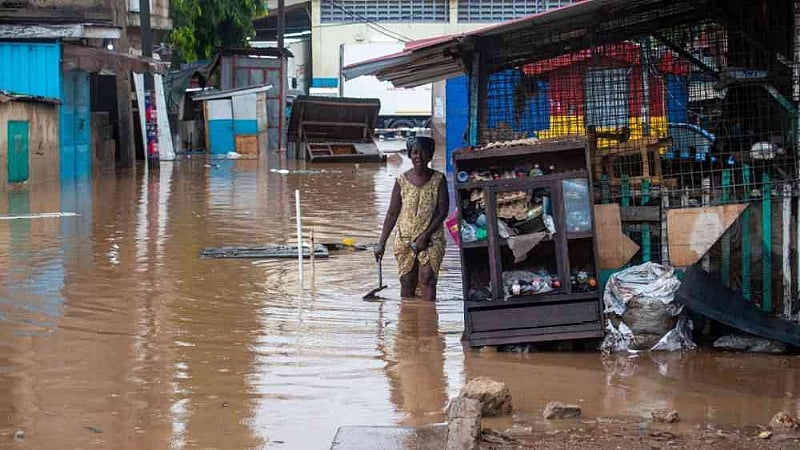Introduction
The torrential rains of Sunday, May 18, 2025, which resulted in severe flooding across Accra and other parts of Ghana, have once again highlighted the weaknesses in our urban infrastructure and more disturbingly, the consequences of our continued negligence. The destruction of homes, disruption of livelihoods, and city-wide paralysis must not be normalized. Each downpour brings us closer to a crisis we can no longer afford to ignore.
The Real Cause: More Than Rain
Eyewitness reports from affected communities revealed clogged drains filled with plastic waste, household refuse, and debris. These were not just floodwaters, they symbolized our collective failure in environmental stewardship. Flooding in Ghana is no longer solely a natural occurrence; it is largely a man-made disaster. Until we admit this truth, we will continue to suffer the same fate.
A Call for Strategic and Sustainable Action
As a communications professional and disaster risk reduction advocate, I believe this is the moment for a paradigm shift. We need to transition from reactive, seasonal responses to proactive, long-term strategies. This crisis requires bold leadership, honest conversations, and unwavering commitment from citizens.
I call on the Ministry of Works and Housing, MMDAs, NADMO, and all relevant bodies to adopt a multi-sectoral, forward-looking strategy that includes:
Upgrading drainage systems to match current and future rainfall patterns and urban growth.
Strict enforcement of building codes and land-use regulations, especially in flood-prone areas.
Investing in effective early warning systems and sustained public education, ensuring communities are prepared before disaster strikes.
Partnering with environmentalists, urban planners, and waste management experts to develop climate-resilient cities.
Empowering local disaster volunteer groups to serve as first responders and community educators. NADMO and other agencies need local support to succeed.
National Policy Shift Is Urgent
I respectfully urge the Government of Ghana through Cabinet to treat Disaster Risk Reduction (DRR) as a national development priority. DRR must be central to our budgetary allocations, policies, and planning. It is not an option, it is a necessity. Ghana cannot continue to lose lives, properties, and economic potential to disasters we can anticipate and prevent.
The Role of Corporate Ghana
Corporate Ghana also has a vital role to play. Through purposeful Corporate Social Responsibility (CSR), businesses can support public education, community clean-ups, flood prevention infrastructure, and emergency preparedness programs. Investing in resilience is not charity, it’s a smart and sustainable business decision.
Everyone Has a Role
Above all, this is a national call to action. From how we dispose of our waste to how we engage with local authorities, every Ghanaian has a responsibility. Building a resilient nation is not solely the job of government agencies, it is a collective duty.
Conclusion
Let this not be just another flood that fades from memory until the next rainy season. Let this be the turning point. Together, through leadership, civic responsibility, and national unity, we can build a Ghana that is safer, cleaner, and prepared for the challenges.


